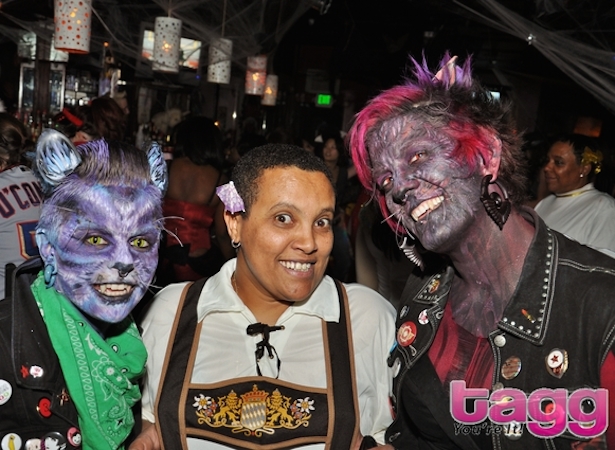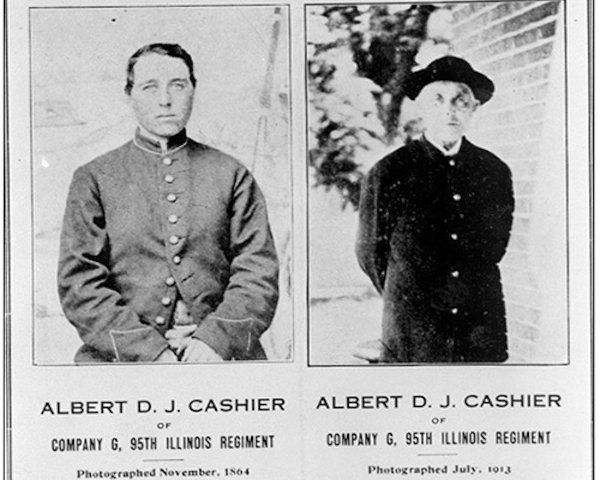
Halloween Going Out Guide 2014
October 30, 2014
Femme Problems 135: Falling in Love with Fall
October 31, 2014The word “transgender” didn’t emerge until the 1970s, but Civil War combat veteran Albert Cashier might have identified with the term if it had existed in his time.
Cashier was assigned female at his 1843 birth in a coastal village of Ireland. Details from the soldier’s childhood remain shrouded in mystery, and at an early age, he immigrated to the United States under circumstances still unclear to historians.
Despite holes in his biography, Cashier is known to have lived as a man well before his enlistment in the Union Army, historian Jean Freedman wrote in a New York Times profile of the soldier. He joined the 95th Illinois Infantry on August 6, 1862, passing muster in brief physical checks of just his feet and hands. Cashier dropped his family’s surname and woman’s given name, registering instead with the male name he would continue to use throughout his life.
The Civil War was in full swing at the time of Cashier’s enlistment, and the young private participated in dozens of battles as part of a regiment overseen by Gen. Ulysses S. Grant.
According to Freedman, Cashier fought with unusual gallantry. During a siege of a key Confederate stronghold at Vicksburg, Miss., he narrowly escaped imprisonment by disarming a captor and fleeing from enemy forces. Elsewhere, he climbed a tall tree under Confederate fire to hoist his unit’s fallen flag.
The infantryman won the respect of his fellow soldiers, but he maintained a low profile. He slept alone, and he took pains to bathe and change his clothes in private.
Cashier supported himself as a laborer for decades after the conflict, and kept his gender variance a secret until just one year before his death. Dementia forced the aging veteran in 1914 to enter a mental institution where caretakers strong-armed him to wear dresses. After his death, though, he received a tombstone inscribed with the identity he chose for himself: “Albert D. J. Cashier, Co. G, 95 Ill. Inf.”
Powered by Quist, the free app about LGBTQ history. For more stories like this one, download for your Apple or Android device. quistapp.com.





